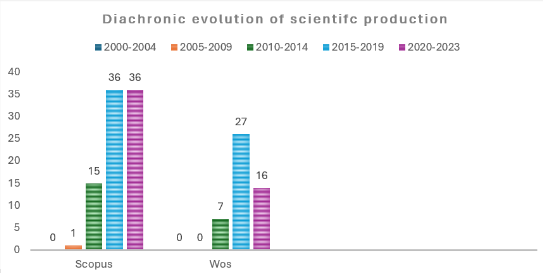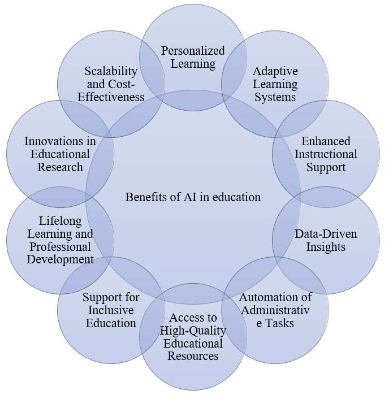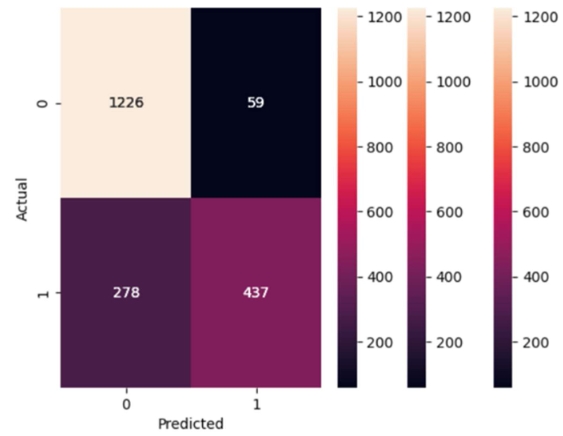Qualitative research: Defining features and guiding principles
Abstract
In the present age and time, there has been a research explosion, thus a huge diversity in research and methods. Defining, characterizing, specializing, and isolating major and minor research and methodology diversity is very significant. Qualitative research, for example, is one of two major research approaches. However, what makes qualitative research qualitative or what is qualitative in qualitative research is a crucial question for understanding qualitative research. This is especially true for novices in the field of qualitative research who depart with this fundamental question. Scholarly attention is therefore needed to address this question. Noticeably, there is scanty literature on a substantial overview that captures the unique features of qualitative research. This paper aims to present a literature survey of the defining characteristics and guiding principles of qualitative research. The authors have extensive experience in qualitative research. Based on their review, the paper outlines the commonly shared characteristics of qualitative research. In the current landscape of resulting research diversity, the highlights of the overview of qualitative research in the present paper are particularly pertinent, especially for novice researchers entering the field.
References
[1] Schweitzer S, Brendel J. A burden of knowledge creation in academic research: evidence from publication data. Industry and Innovation. 2020; 28(3): 283-306. doi: 10.1080/13662716.2020.1716693
[2] Cai W, McKenna B. Knowledge Creation in Information Technology and Tourism Research. Journal of Travel Research. 2020; 60(4): 912-915. doi: 10.1177/0047287520903142
[3] Xiang Z, Fesenmaier DR, Werthner H. Knowledge Creation in Information Technology and Tourism: A Critical Reflection and an Outlook for the Future. Journal of Travel Research. 2020; 60(6): 1371-1376. doi: 10.1177/0047287520933669
[4] Zaitsava M, Marku E, Di Guardo MC, et al. A fine-grained perspective on big data knowledge creation: dimensions, insights, and mechanism from a pilot study. Journal of Management and Governance. 2022; 27(2): 547-573. doi: 10.1007/s10997-022-09659-0
[5] Whitley BE Jr, Kite ME. Principles of Research in Behavioral Science. Routledge; 2012. doi: 10.4324/9780203085219
[6] Kyvik S, Reymert I. Research collaboration in groups and networks: differences across academic fields. Scientometrics. 2017; 113(2): 951-967. doi: 10.1007/s11192-017-2497-5
[7] Tamminen KA, Poucher ZA. Research philosophies. In: Hackfort D, Schinke R (editors). The Routledge International Encyclopedia of Sport and Exercise Psychology. Routledge; 2020. pp. 535-549. doi: 10.4324/9781315187259-39
[8] Dhir SK, Gupta P. Formulation of Research Question and Composing Study Outcomes and Objectives. Indian Pediatrics. 2021; 58(6): 584-588. doi: 10.1007/s13312-021-2246-y
[9] Wang C, Peters MA, Yichuan W, et al. Contemporary Chinese Marxism: Basic research orientations. Educational Philosophy and Theory. 2021; 54(11): 1740-1753. doi: 10.1080/00131857.2021.1981858
[10] Goldschmidt G, Matthews B. Formulating design research questions: A framework. Design Studies. 2022; 78: 101062. doi: 10.1016/j.destud.2021.101062
[11] Alvesson M, Sandberg J. The Art of Phenomena Construction: A Framework for Coming Up with Research Phenomena beyond ‘the Usual Suspects’. Journal of Management Studies. 2023; 61(5): 1737-1765. doi: 10.1111/joms.12969
[12] Dickson-Swift V, James EL, Kippen S, et al. Doing sensitive research: what challenges do qualitative researchers face? Qualitative Research. 2007; 7(3): 327-353. doi: 10.1177/1468794107078515
[13] Holloway I, Todres L. Thinking differently: challenges in qualitative research. International Journal of Qualitative Studies on Health and Well-being. 2007; 2(1): 12-18. doi: 10.1080/17482620701195162
[14] Flick U. Challenges for Qualitative Inquiry as a Global Endeavor. Qualitative Inquiry. 2014; 20(9): 1059-1063. doi: 10.1177/1077800414543693
[15] Flick U. Mixing Methods, Triangulation, and Integrated Research. In: Denzin NK, Giardina MD (editors). Qualitative Inquiry and Global Crises. Routledge; 2016. pp. 132-152. doi: 10.4324/9781315421612-7
[16] Cuthbertson LM, Robb YA, Blair S. Theory and application of research principles and philosophical underpinning for a study utilising interpretative phenomenological analysis. Radiography. 2020; 26(2): e94-e102. doi: 10.1016/j.radi.2019.11.092
[17] Braun V, Clarke V, Boulton E, et al. The online survey as a qualitative research tool. International Journal of Social Research Methodology. 2020; 24(6): 641-654. doi: 10.1080/13645579.2020.1805550
[18] Hennink M, Kaiser BN. Sample sizes for saturation in qualitative research: A systematic review of empirical tests. Social Science & Medicine. 2022; 292: 114523. doi: 10.1016/j.socscimed.2021.114523
[19] Vindrola-Padros C, Johnson GA. Rapid Techniques in Qualitative Research: A Critical Review of the Literature. Qualitative Health Research. 2020; 30(10): 1596-1604. doi: 10.1177/1049732320921835
[20] Chun Tie Y, Birks M, Francis K. Grounded theory research: A design framework for novice researchers. SAGE Open Medicine. 2019; 7: 205031211882292. doi: 10.1177/2050312118822927
[21] Darwin Holmes AG. Researcher Positionality - A Consideration of Its Influence and Place in Qualitative Research - A New Researcher Guide. Shanlax International Journal of Education. 2020; 8(4): 1-10. doi: 10.34293/education.v8i4.3232
[22] Tomaszewski LE, Zarestky J, Gonzalez E. Planning Qualitative Research: Design and Decision Making for New Researchers. International Journal of Qualitative Methods. 2020; 19: 160940692096717. doi: 10.1177/1609406920967174
[23] Hancock DR, Algozzine B, and Lim JH. Doing Case Study Research: A Practical Guide for Beginning Researchers. Teachers’ College Press; 2021.
[24] Pae CU. Why Systematic Review rather than Narrative Review? Psychiatry Investigation. 2015; 12(3): 417. doi: 10.4306/pi.2015.12.3.417
[25] Booth A Clarke M, Ghersi D, et al. An international registry of systematic-review protocols. The Lancet. 2011; 377(9760): 108-109. https://doi.org/10.1016/S0140-6736(10)60903-8
[26] Elo S, Kyngäs H. The qualitative content analysis process. Journal of Advanced Nursing. 2008; 62(1): 107-115. doi: 10.1111/j.1365-2648.2007.04569.x
[27] Jackson RL, Drummond DK, Camara S. What Is Qualitative Research? Qualitative Research Reports in Communication. 2007; 8(1): 21-28. doi: 10.1080/17459430701617879
[28] Gerring J. Case Study Research: Principles and Practices. Cambridge University Press; 2007. doi: 10.1017/cbo9780511803123
[29] Bechhofer F, Paterson L. Principles of Research Design in the Social Sciences. Routledge; 2012. doi: 10.4324/9780203136720
[30] Mcniff J. Action Research: Principles and Practice. Routledge; 2013.
[31] Hancock B, Ockleford E, Windridge K. An Introduction to Qualitative Research. Trent Focus Group; 2001.
[32] Levitt HM. Essentials of Critical-Constructivist Grounded Theory Research. American Psychological Association; 2021. doi: 10.1037/0000231-000
[33] Korstjens I, Moser A. Series: Practical guidance to qualitative research. Part 4: Trustworthiness and publishing. European Journal of General Practice. 2017; 24(1): 120-124. doi: 10.1080/13814788.2017.1375092
[34] Bryman A, Stephens M, Campo C. The importance of context: Qualitative research and the study of leadership. The Leadership Quarterly. 1996; 7(3): 353-370. https://doi.org/10.1016/S1048-9843(96)90025-9
[35] Ratner C. Subjectivity and Objectivity in Qualitative Methodology. Forum Qualitative Sozialforschung/Forum: Qualitative Social Research. 2002; 3: 3(2002): Subjectivity and Reflexivity in Qualitative Research I. doi: 10.17169/FQS-3.3.829
[36] Parker S. How to do qualitative research? In: Proceedings of the RANZCP 2017 Congress; 30 April–4 May 2017; Adelaide, Australia.
[37] Sinuff T, Cook DJ, Giacomini M. How qualitative research can contribute to research in the intensive care unit. Journal of Critical Care. 2007; 22(2): 104-111. doi: 10.1016/j.jcrc.2007.03.001
[38] White MD, Marsh EE. Content Analysis: A Flexible Methodology. Library Trends. 2006; 55(1): 22-45. doi: 10.1353/lib.2006.0053
[39] Lu CJ, Shulman SW. Rigor and flexibility in computer-based qualitative research: Introducing the Coding Analysis Toolkit. International Journal of Multiple Research Approaches. 2008; 2(1): 105-117. doi: 10.5172/mra.455.2.1.105
[40] Tuffour I. A Critical Overview of Interpretative Phenomenological Analysis: A Contemporary Qualitative Research Approach. Journal of Healthcare Communications. 2017; 02(04). doi: 10.4172/2472-1654.100093
[41] Bouncken RB, Qiu Y, Sinkovics N, et al. Qualitative research: extending the range with flexible pattern matching. Review of Managerial Science. 2021; 15(2): 251-273. doi: 10.1007/s11846-021-00451-2
[42] Thompson Burdine J, Thorne S, Sandhu G. Interpretive description: A flexible qualitative methodology for medical education research. Medical Education. 2020; 55(3): 336-343. doi: 10.1111/medu.14380
[43] Thille P, Chartrand L, Brown C. Diary-interview studies: longitudinal, flexible qualitative research design. Family Practice. 2022; 39(5): 996-999. doi: 10.1093/fampra/cmac039
[44] Ryen A. Ethics and qualitative research. In: Silverman D (editor). Qualitative Research. Sage; 2011. pp. 416-238.
[45] Moser A, Korstjens I. Series: Practical guidance to qualitative research. Part 3: Sampling, data collection and analysis. European Journal of General Practice. 2017; 24(1): 9-18. doi: 10.1080/13814788.2017.1375091
[46] King O. Two sets of qualitative research reporting guidelines: An analysis of the shortfalls. Research in Nursing & Health. 2021; 44(4): 715-723. doi: 10.1002/nur.22157
[47] Krefting L. Rigor in Qualitative Research: The Assessment of Trustworthiness. The American Journal of Occupational Therapy. 1991; 45(3): 214-222. doi: 10.5014/ajot.45.3.214
[48] Johnson JL, Adkins D, Chauvin S. A Review of the Quality Indicators of Rigor in Qualitative Research. American Journal of Pharmaceutical Education. 2020; 84(1): 7120. doi: 10.5688/ajpe7120
[49] Harley B, Cornelissen J. Rigor with or Without Templates? The Pursuit of Methodological Rigor in Qualitative Research. Organizational Research Methods. 2020; 25(2): 239-261. doi: 10.1177/1094428120937786
[50] Fusch P, Ness L. Are We There Yet? Data Saturation in Qualitative Research. The Qualitative Report. 2015; 20(9): 1408-1416. doi: 10.46743/2160-3715/2015.2281
[51] Mwita K. Factors influencing data saturation in qualitative studies. International Journal of Research in Business and Social Science (2147-4478). 2022; 11(4): 414-420. doi: 10.20525/ijrbs.v11i4.1776
[52] Decrop A. Triangulation in qualitative tourism research. Tourism Management. 1999; 20 (1): 157-161. https://doi.org/10.1016/S0261-5177(98)00102-2
[53] Carter N, Bryant-Lukosius D, DiCenso A, et al. The Use of Triangulation in Qualitative Research. Oncology Nursing Forum. 2014; 41(5): 545-547. doi: 10.1188/14.onf.545-547
[54] Flick U. Triangulation in Data Collection. In: The SAGE Handbook of Qualitative Data Collection. Sage; 2018. pp. 527-544. doi: 10.4135/9781526416070.n34
[55] Natow RS. The use of triangulation in qualitative studies employing elite interviews. Qualitative Research. 2019; 20(2): 160-173. doi: 10.1177/1468794119830077
[56] Santos K da S, Ribeiro MC, Queiroga DEU de, et al. O uso de triangulação múltipla como estratégia de validação em um estudo qualitativo. Ciência & Saúde Coletiva. 2020; 25(2): 655-664. doi: 10.1590/1413-81232020252.12302018
[57] Gregory I. Ethics in Research. Continuum; 2003.
[58] Aguinis H, Henle CA. Ethics in Research. In: Rogelberg SG (editor). Handbook of Research Methods in Industrial and Organizational Psychology. Blackwell Publishing; 2004. pp. 34-56. doi: 10.1002/9780470756669.ch2
[59] Reijers W, Wright D, Brey P, et al. Methods for Practising Ethics in Research and Innovation: A Literature Review, Critical Analysis and Recommendations. Science and Engineering Ethics. 2017; 24(5): 1437-1481. doi: 10.1007/s11948-017-9961-8
[60] Alderson P, Morrow V. The Ethics of Research with Children and Young People: A Practical Handbook. Sage; 2020. doi: 10.4135/9781529682694
[61] Zimmer M. “But the data is already public”: On the ethics of research in Facebook. In: Miller KW, Taddeo M (editors). The Ethics of Information Technologies. Routledge; 2020. pp. 229-241. doi: 10.4324/9781003075011-17
[62] Moriña A. When people matter: The ethics of qualitative research in the health and social sciences. Health & Social Care in the Community. 2020; 29(5): 1559-1565. doi: 10.1111/hsc.13221
[63] Sun Y, Blewitt C, Edwards S, et al. Methods and Ethics in Qualitative Research Exploring Young Children’s Voice: A Systematic Review. International Journal of Qualitative Methods. 2023; 22: 160940692311524. doi: 10.1177/16094069231152449
[64] Kyngäs H, Mikkonen K, Kääriäinen M, et al. The Application of Content Analysis in Nursing Science Research. Springer International Publishing; 2020. doi: 10.1007/978-3-030-30199-6
[65] Klykken FH. Implementing continuous consent in qualitative research. Qualitative Research. 2021; 22(5): 795-810. doi: 10.1177/14687941211014366
[66] Busetto L, Wick W, Gumbinger C. How to use and assess qualitative research methods. Neurological Research and Practice. 2020; 2(1). doi: 10.1186/s42466-020-00059-z
[67] Motulsky SL. Is member checking the gold standard of quality in qualitative research? Qualitative Psychology. 2021; 8(3): 389-406. doi: 10.1037/qup0000215
[68] Varga-Dobai K. The Relationship of Researcher and Participant in Qualitative Inquiry: From “Self and Other” Binaries to the Poststructural Feminist Perspective of Subjectivity. The Qualitative Report. 2012; 17: 93.
[69] Guillemin M, Heggen K. Rapport and respect: negotiating ethical relations between researcher and participant. Medicine, Health Care and Philosophy. 2008; 12(3): 291-299. doi: 10.1007/s11019-008-9165-8
Copyright (c) 2024 Md. Saiful Alam, Adelina Asmawi

This work is licensed under a Creative Commons Attribution 4.0 International License.
Authors contributing to this journal agree to publish their articles under the Creative Commons Attribution 4.0 International License, allowing third parties to share their work (copy, distribute, transmit) and to adapt it for any purpose, even commercially, under the condition that the authors are given credit. With this license, authors hold the copyright.










